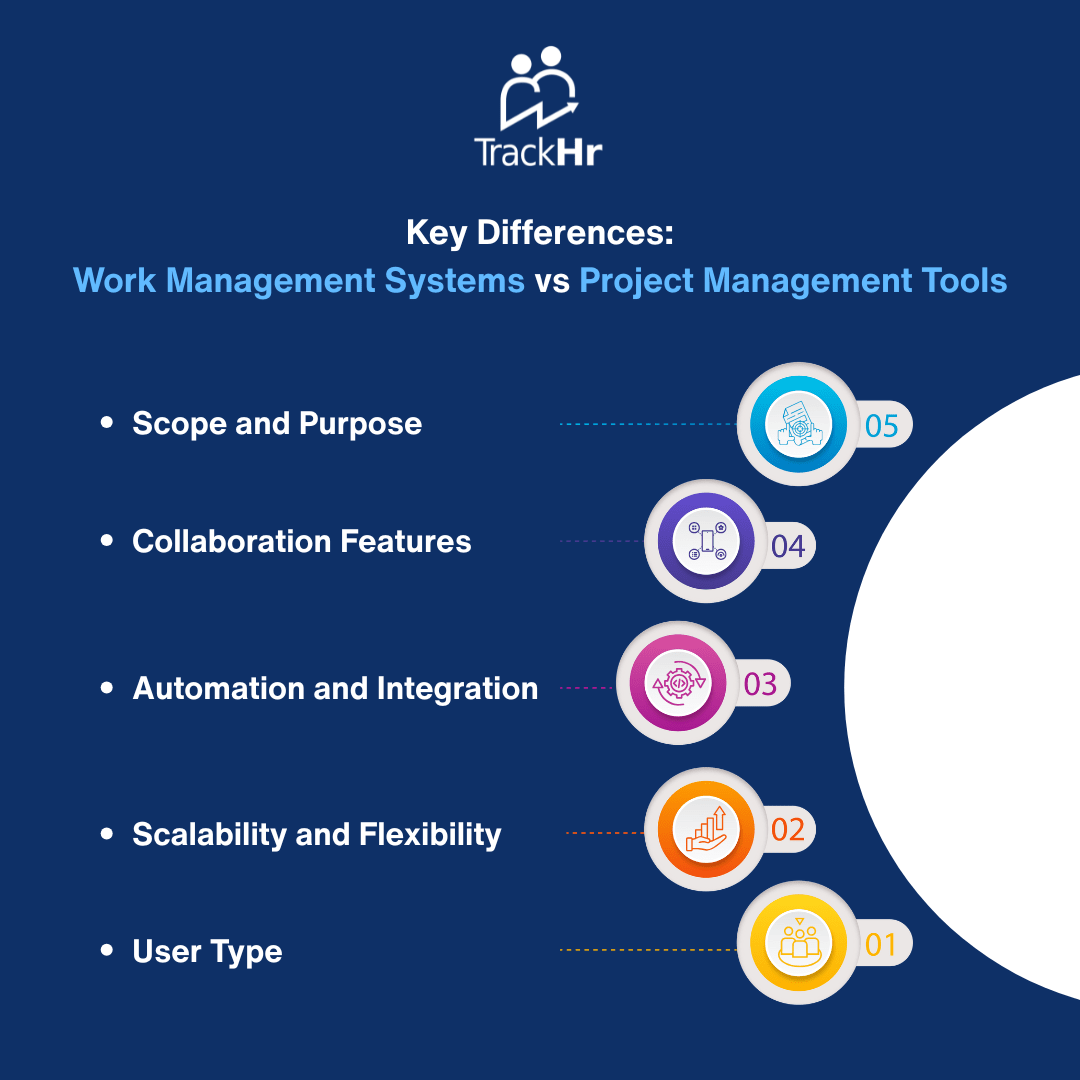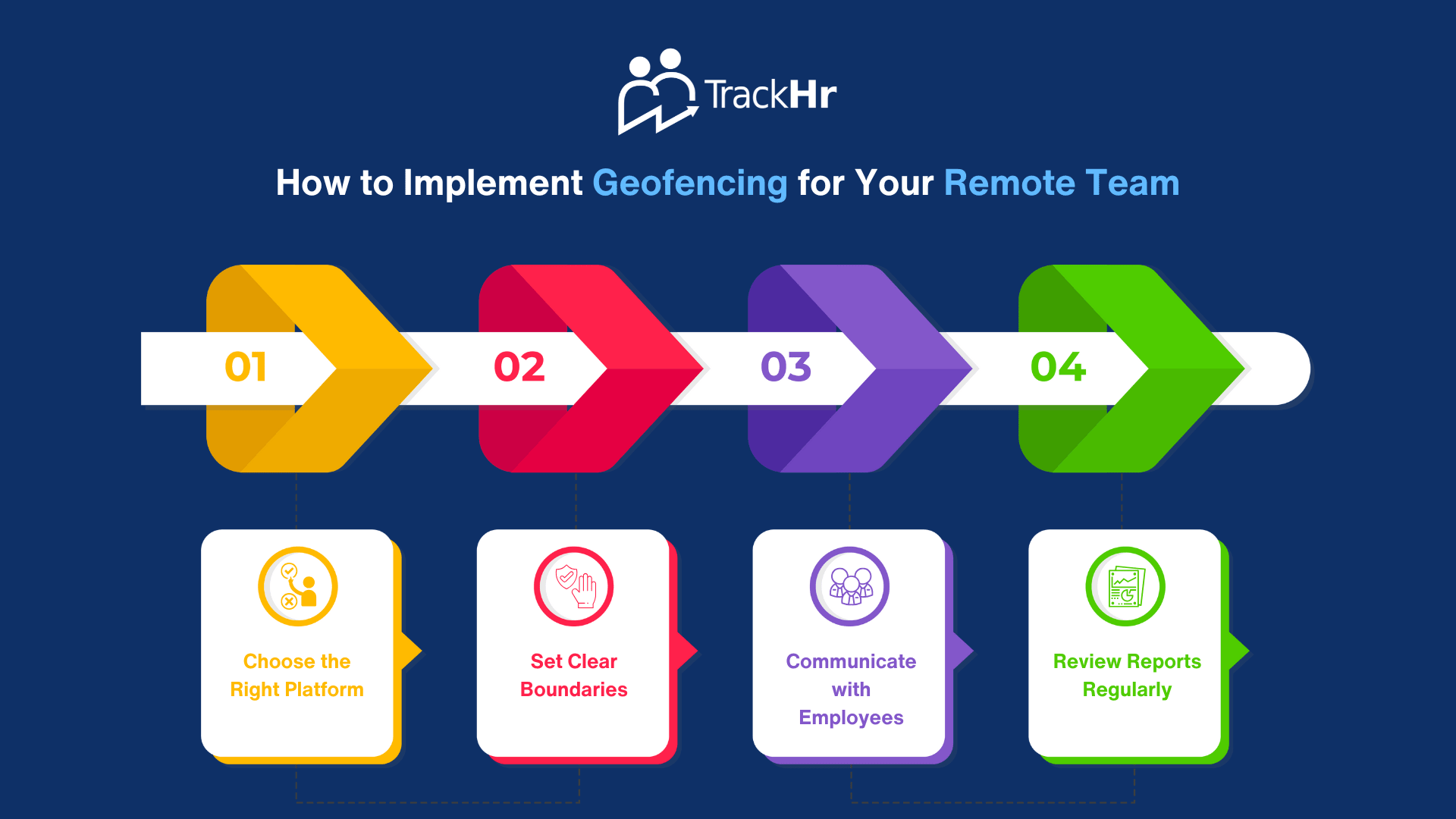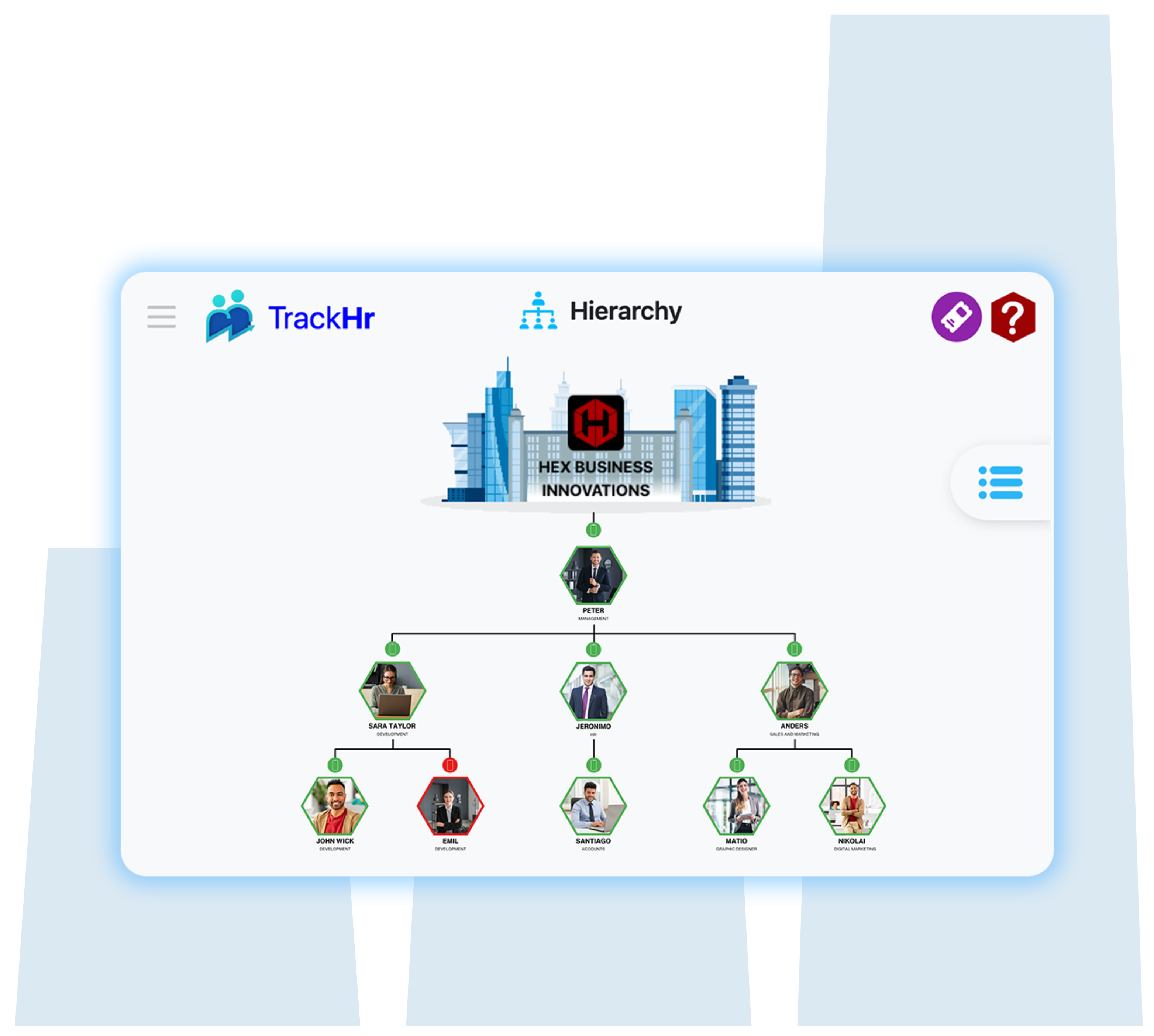Blog
Key Metrics to Track in Your Work Management System
- May 29, 2025
- 6:09 am

Work management systems do more than organize tasks—they provide valuable insights into team performance and operational efficiency. By tracking the right work management metrics, businesses can identify bottlenecks, boost productivity, and drive project success.
In this article, we’ll explore the most important metrics to monitor in your work management platform and how to use them to make data-driven decisions.
1. Task Completion Rate
This metric shows the percentage of completed tasks out of the total assigned. It reflects your team’s efficiency and ability to meet deadlines.
Why It Matters:
- Highlights progress and workload management
- Identifies underperformance or overloading
How to Use It:
Example Tool: TrackHr allows teams to visualize marketing timelines and track campaign milestones in real time.
2. Time Spent on Tasks
Tracking how long team members spend on individual tasks helps analyze time efficiency and resource allocation.
Why It Matters:
- Reveals productivity patterns
- Helps with future task estimation
How to Use It:
- Compare estimated vs. actual time
- Optimize time-consuming processes
3. Overdue Tasks
This metric counts tasks that have passed their deadlines.
Why It Matters:
- Indicates workflow issues or misaligned priorities
- Affects overall project timelines
How to Use It:
- Investigate repeated delays
- Set reminders or adjust workloads
4. Resource Utilization
Tracks how team capacity is being used across projects.
Why It Matters:
- Prevents employee burnout or underutilization
- Aids in balanced resource planning
How to Use It:
- Use dashboards to visualize workloads
- Reassign tasks based on availability
5. Cycle Time
Cycle time is the duration from task start to finish. Shorter cycles often indicate efficient processes.
Why It Matters:
- Shows how quickly teams complete tasks
- Helps improve turnaround time
How to Use It:
- Set baseline expectations
- Streamline workflows for faster execution
6. Project Progress
Measures how far along a project is based on completed milestones or tasks.
Why It Matters:
- Tracks momentum
- Flags potential delays
How to Use It:
- Review progress weekly
- Adjust priorities to stay on schedule
7. Team Collaboration Metrics
Track activities like:
- Number of comments per task
- File sharing
- Team interactions
Why It Matters:
- Encourages communication
- Detects team engagement
How to Use It:
- Promote knowledge sharing
- Identify collaboration gaps
Conclusion
By focusing on these work management metrics, organizations can gain actionable insights to improve efficiency, accountability, and performance. A data-driven approach ensures that every team member stays aligned with business goals and productivity stays on track.
Final Thought
The right metrics aren’t just numbers—they’re a roadmap to smarter work. Equip your team with visibility, control, and clarity using a robust work management system.
Table of Contents
Exhausted from managing performance management manually?






